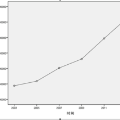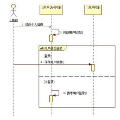Multivariate time series data comprises various channels of variables. The multivariate forecasting models need to capture the relationship between the channels to accurately predict future values. However, recently, there has been an emergence of methods that employ the Channel Independent (CI) strategy. These methods view multivariate time series data as separate univariate time series and disregard the correlation between channels. Surprisingly, our empirical results have shown that models trained with the CI strategy outperform those trained with the Channel Dependent (CD) strategy, usually by a significant margin. Nevertheless, the reasons behind this phenomenon have not yet been thoroughly explored in the literature. This paper provides comprehensive empirical and theoretical analyses of the characteristics of multivariate time series datasets and the CI/CD strategy. Our results conclude that the CD approach has higher capacity but often lacks robustness to accurately predict distributionally drifted time series. In contrast, the CI approach trades capacity for robust prediction. Practical measures inspired by these analyses are proposed to address the capacity and robustness dilemma, including a modified CD method called Predict Residuals with Regularization (PRReg) that can surpass the CI strategy. We hope our findings can raise awareness among researchers about the characteristics of multivariate time series and inspire the construction of better forecasting models.
翻译:多元时间序列数据由各种变量通道组成。多元预测模型需要捕捉通道之间的关系以精确地预测未来值。然而,最近出现了采用独立通道(CI)策略的方法。这些方法将多元时间序列数据视为独立的单元时间序列,并不考虑通道之间的相关性。令人惊讶的是,我们的实证结果表明,采用CI策略训练的模型通常比采用通道相关(CD)策略训练的模型表现更好,差距显著。然而,这种现象的原因尚未得到深入探讨。本文对多元时间序列数据集和CI/CD策略的特征进行了全面的实证和理论分析。我们的结果表明,CD方法具有更高的容量,但往往缺乏精确预测分布漂移的时间序列的鲁棒性。相反,CI方法为鲁棒预测而牺牲了容量。基于这些分析,提出了实际措施,包括一种改进的CD方法,称为带正则化的预测残差(PRReg),可超越CI策略。我们希望我们的发现能够引起研究人员对多元时间序列特性的关注,并激发构建更好的预测模型的实践。



